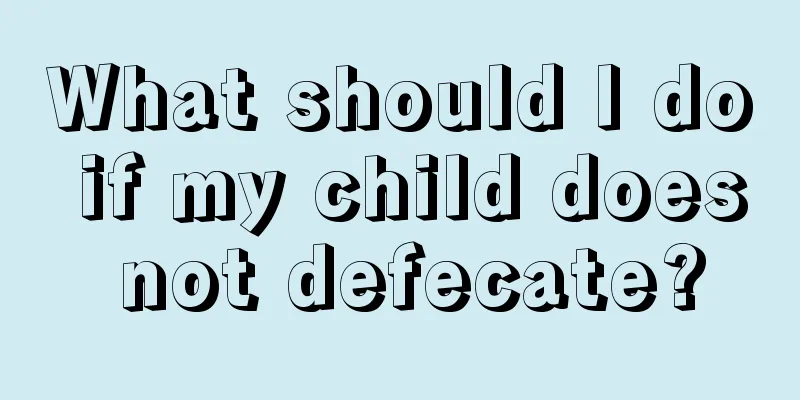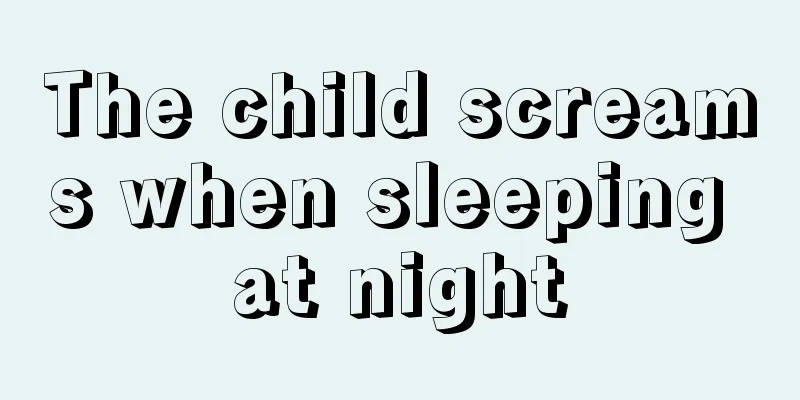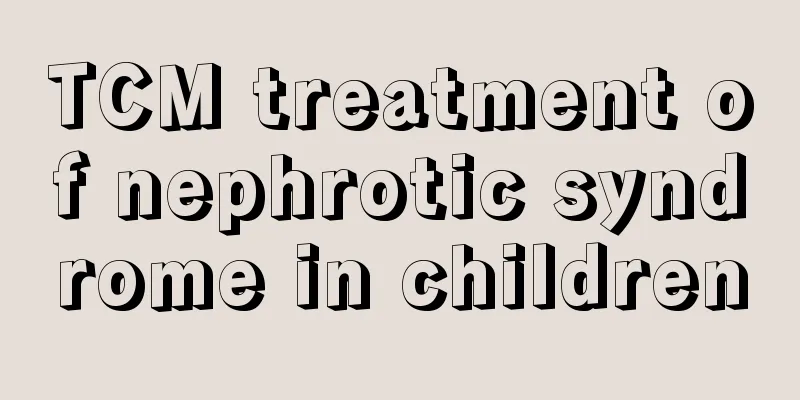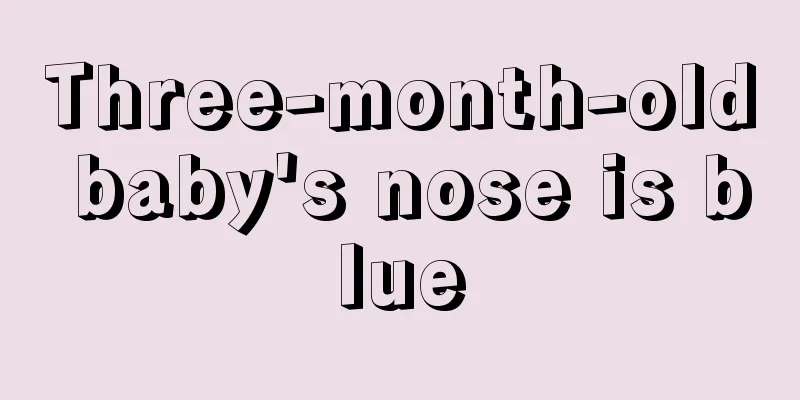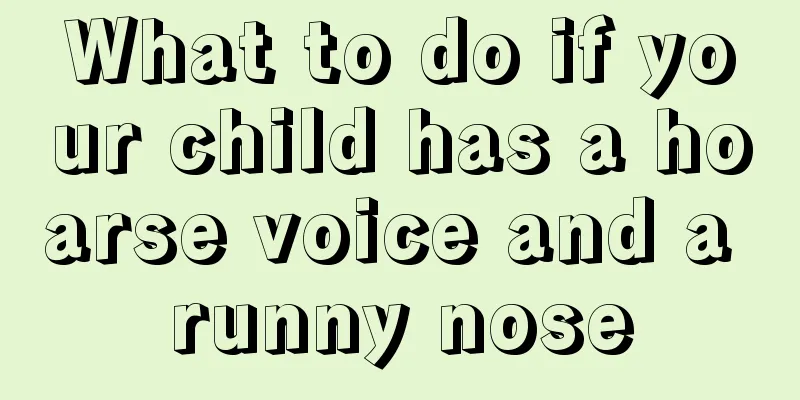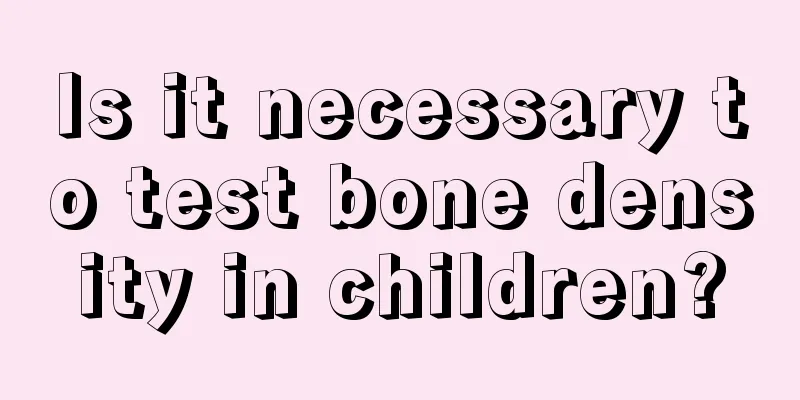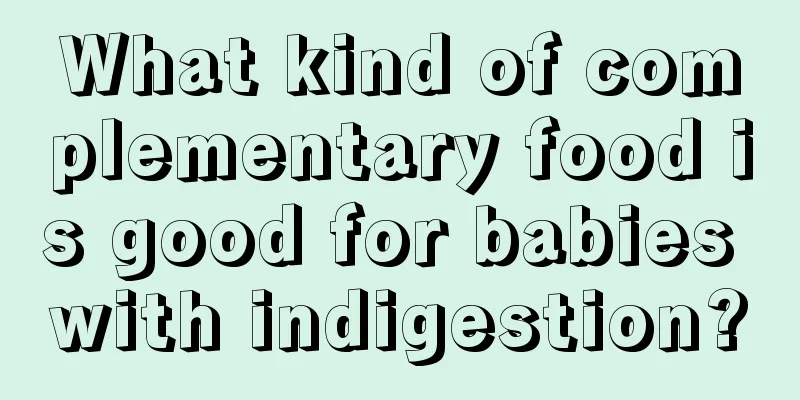What causes baby spit-up?
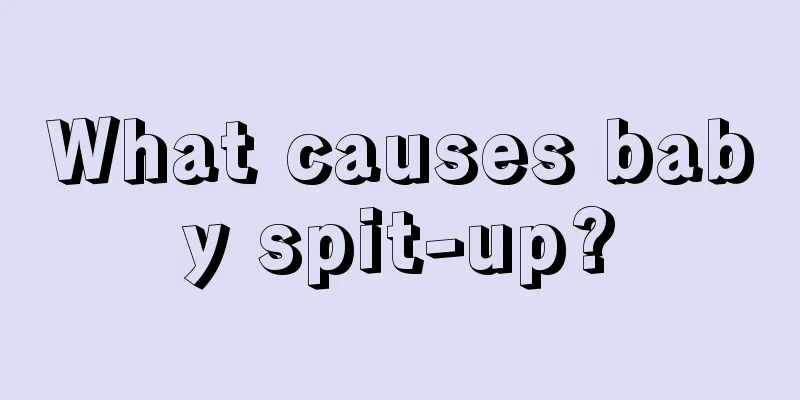
|
Because babies have low body resistance and various body functions need to develop, they always have different manifestations. Spitting is one of them. However, even if it is just one kind of spitting, there are always many different manifestations. So, is it normal for babies to spit up? If it is abnormal, what caused it? Should baby spitting up be treated? To this end, let us learn about the relevant knowledge together. Baby blowing bubbles, pay attention to Bubbling due to increased saliva secretion The central nervous system and salivary glands of newborns are still immature, and the amount of saliva secreted is small. At 3-4 months, the salivary glands begin to develop and the amount of saliva secretion increases. However, the baby's oral cavity is relatively shallow at this time, the swallowing ability is not fully developed, the movements of lip closing and swallowing are not coordinated, and the excess saliva in the mouth cannot be regulated, so drooling and spitting bubbles are prone to occur. No treatment required, it will go away on its own! Symptoms of pneumonia For infants, especially those who are very young, the symptoms of pneumonia are not obvious. Generally, there is no cough, and the body temperature does not rise, or may even be lower than normal! Sometimes the only thing that can be observed is the "bubbling at the mouth" phenomenon, or gastrointestinal symptoms such as diarrhea. Judging from the above characteristics, if the baby spit bubbles, it should be paid attention to. If the baby is less than three months old, it is likely to be a symptom of pneumonia; if it is three or four months old, it is mostly normal. Whether there are signs of pneumonia can be further judged from the baby's breathing, eating, mental state, and whether there are other abnormal conditions to further decide whether to see a doctor. Characteristics and treatment of pneumonia in infants About Pneumonia The baby got pneumonia before he was even one month old, and it took him a full month to recover. Now analyzing the reasons, it is mainly because his father and I are both big birds with no experience and neglected some obvious symptoms. 1. Wheezing (sputum) The first symptom that appeared was wheezing, which was more obvious at night. The baby often felt short of breath, so I had to hold him to sleep after 2 a.m. because the tilted angle would make him more comfortable. This situation did not last for two weeks, and with my persistence, I finally went to the hospital. The doctor said it was pneumonia. However, it should be distinguished from congenital calcium deficiency and laryngeal stridor. 2. Spitting Another obvious symptom of pneumonia in the neonatal period is foaming at the mouth, which sounds like bubbles, especially when the baby is asleep. Foaming usually occurs only when pneumonia develops to a certain extent. Of course, this does not include babies over 3 months old, because babies over 3 months old have saliva. The baby teeth are starting to grow. 3. Breathing rate The baby's breathing rate increases significantly when he has pneumonia. When a newborn baby is sleeping quietly, the breathing rate should not exceed 40 times. If it is 40-50 times, you need to go to the hospital for diagnosis, as it is either influenza or pneumonia. As babies exercise more and more, their breathing rate decreases, usually no more than 40 times. But now my baby only breathes 20-25 times when he sleeps, because he is already one year old. 4. Breathing method Deep breathing, also called abdominal breathing, is when the chest is deeply sunken during breathing. 5. Spitting up milk (spitting up water) The main symptom is vomiting. Inexperienced people may think that they have swallowed air into their stomachs, and then when the baby vomits even "water" for a few days, they will realize the seriousness of the problem. The vomiting method is "jet"-like, which is different from regurgitating milk. 6. Listening Listening to the baby's lungs with a stethoscope, the common cold has "coarse breath sounds", pneumonia has "dry rales" and "wet rales", after treatment, it turns into "small and medium bubbling sounds" and then gets better and turns into "coarse breath sounds". After recovery, the sound listening is "no obvious abnormality" Note: Babies with pneumonia usually do not have fever or high fever, and cough less often, especially in newborns. The cough is even less obvious. They tend to swallow phlegm into the stomach and then excrete it through the feces. Therefore, babies with pneumonia will have loose stools. I usually like to use the breathing method to judge the baby's condition. Treatment: Combining Chinese and Western Medicine 1. Western medicine requires the use of adequate amounts of antibiotics, which usually takes 8-14 days, especially after the "coarse breathing sounds" are heard, and then antibiotics are used for 2-4 days for maintenance treatment. 2. Traditional Chinese medicine and Chinese medicine are used for expectorant treatment. Because phlegm accumulates in the lungs, pneumonia is not easy to cure. Usually 4-6 doses of Chinese medicine are needed to eliminate phlegm, often after antibiotic treatment. At this time, the first thing the baby does when he wakes up in the morning is to spit out large mouthfuls of phlegm. When the phlegm is spit out, the whole day will be easy. 3. Probiotics. Probiotics are used in combination with auxiliary treatment. After using antibiotics for 4-7 days, the baby will have diarrhea due to intestinal flora disorder. At this time, probiotics are needed in combination with auxiliary treatment. Usually, they are taken 2-4 hours after the antibiotics are taken, and can be taken with milk. These are very important. Some babies’ pneumonia is not cured and diarrhea starts again. After recovery: Pneumonia in infancy can be completely cured with basically no sequelae, and it rarely recurs within a year. However, mothers will often take more careful care of their babies due to their serious illness, which may have a negative effect. Do cold air exercise, now is the best season, play outdoors for more than 3 hours every day, nature is the best teacher. Regular bathing is also good for your baby. The above is an introduction to baby spitting. It should be noted here that it is normal for babies to spit up, so new parents need to observe the baby's mental state in time. If the baby's spitting up is serious, it is best to seek medical attention in time. Even if you want to give your baby medicine, you must do so under the guidance of a doctor and not use it empirically. |
<<: Prevention of influenza in children
>>: What to do if your baby has thick white tongue coating
Recommend
Tooth calcification in children
The health of our teeth is very important to us. T...
Allergic asthma in children
Allergic asthma in children is the biggest worry ...
What should I do if my baby is bitten by a spider?
Little babies are very curious. Sometimes they ar...
Tonsillectomy complications in children
Tonsils are a type of lymphatic organ. They can e...
"Little Fat Boys" should be careful about chronic diseases. How to control children's diet
Obesity has become a major challenge facing all m...
Neonatal jaundice index
Like other physiological health indicators, the n...
Developmental indicators and related health care issues for premature babies
Premature babies do not develop well in their mot...
Can girls also get vaginitis?
Vaginitis is a gynecological disease with a high ...
What to do if your child often has headaches
Some friends in life often suffer from headaches,...
How can children correct their hunchbacks through self-exercise?
Many parents will find that their children have p...
The baby's physical development is delayed
After birth, babies usually develop very quickly,...
What is the reason for the red pimples on the face of an 8-year-old child?
Red bumps on the face of an 8-year-old child may ...
How to deal with children's abrasions
Children are lively and active, and seem to have ...
What should I do if my child’s teeth bleed?
Bleeding teeth is a very common phenomenon. We of...
What are the early symptoms of cerebral palsy in infants?
The incidence of cerebral palsy in infants is rel...

